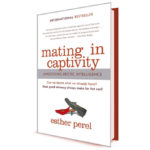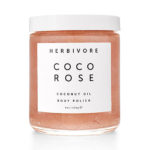Poll: What's the Best Age for Parents to Teach Kids Sex Ed?
Em&Lo's Greatest Hits

My New Boyfriend Has a Small Penis…At Least, It’s Small to Me

10 Reasons Your “Ugly Vagina” Is Normal and Gorgeous

Dear Dr. Kate: Can You Tell Me All About the NuvaRing?
Favorite Finds
5 Comments
Comments are closed.














I’m pretty sure I’ll be terrified to even bring it up with my own kids. I voted 6-8 was a good age even though I felt like 9-10 would be better. However I went to school with a girl who had a baby at 11 so I know it’s happening earlier and earlier and I want my kids to be comfortable asking me whatever they need to as soon as they need to.
And even though my dad had somewhat of a “talk” with me, I know what I was out doing when my dad thought I was spending the night at a friend’s. It’s only getting worse and I’m terrified of what my kids will be doing at that age.
I don’t agree with a wait until they ask policy – I never asked. I was terrified my parents would think I’d already done something. I ended up finding out in an “unorthodox” manner.
My niece asked her first question before she could talk – she pointed at her genitals and looked at me. I told her the name of what she was pointing to and said she was a girl and that’s what girls have. She then pointed at mine (I was wearing clothes), and I said I was a girl too, so I had the same just like her. And then she grinned. So my POV is start talking about it right out of the chute. Yes, at infancy, they don’t know what you’re talking about, but it gives you good practice for when they do.
That was a perfect comment! When it comes time to embrace that discussion in my own future family I will remember your approach. Having an open and ongoing conversation about sexuality will ensure that a child doesn’t feel shame or embarrassment about their own sexuality. By using this method we are raising children that are mature, accepting, have a strong understanding of the importance of sex and how to make positive choices regarding it.
Sex education for children begins when talking begins. Children are naturally curious, and things like saying, “Your Papa and I loved each other so much we made you together (and your brothers and sisters) as part of our love.”
As children learn the parts of the body (my kids started with eyes and mouth at about 6 or 7 months of age) it easily progresses to fingers, toes,arms, legs, butt, Yoni or vagina and vulva, Penis, testes, etc. These are normal parts of the body, which children are interested in, and they WILL touch them and they should know the words for them as they learn the other parts of the body.
With our children, we used the Sanskrit/Hindi work “Yoni” along with vagina and vulva. One of my girls found her own clitoris at the age of about 2 1/2 and wanted to know what it was and what it was for. Should I have lied to her about what it was, or screamed at her for “touching” herself? Of course not. She referred to it as, “What is that little pea, that thing that you like?” As soon as she said that, I knew what she meant, so we talked about it and it’s role in “loving a partner and making babies as well as loving yourself.”
The words for penis and testes were also taught along side other body parts. WHY are these parts treated so differently by some people or ignored altogether? Should they be called by baby names or left out of the learning process that infants go through when they begin talking and learn curious thinking? Or should they just be treated like any other body part? Talk about them normally.
As time goes on the PROCESS of learning automatically goes from body parts to what they are for. My Man and I NEVER had “The Talk” with our children, it was an ongoing discussion, when Teachable Moments happened, so that there would be no shock, and so that sexual expression would be presented as healthily and simply as talking about food processing, body care, cleanliness, eating or any other activity and processes in the human body.
Kids talk about “butts” a LOT. 😉 They are naturally interested in eating and eliminating, and they also become interested in their genitals around the same time. Just make these discussions healthy, normal, simple and DON’T make a big thing of it.
Sex is as normal a part of life as eating a meal. (And as necessary, and as enjoyable.) It should be presented in the same way that talking about any other body part and function is discussed.
Likewise, other forms of sexuality should be discussed as they are brought up. When Uncle Keith and his “Friend” Uncle Drew come over, the time can be taken to discuss (after they leave, unless they bring it up to the children themselves, which is fine,) “Uncle Keith is Gay. That means that he is in love with Uncle Drew, like Mama and Papa are in love with each other, too. Gay men fall in love with other men, and Gay or Lesbian women fall in love with other women. Just like Auntie Rae Rae and her partner Auntie Nancy.”
If you have no Gay or Lesbian friends, then mentions of GLBT people on TV can be a jumping off point for a discussion about how people love the SAME but may be attracted to and fall in love with either people of the opposite sex, or of the same sex. Kids organically understand this and accept it, if this is presented as normal and healthy from and early age.
When sexual organs are not stigmatized, if you refuse to freak out when you see your children “touching” them, these discussions go very much more easily. Kids WILL play with themselves, simply let them know, “It’s OK to touch your penis or your Yoni, but it’s private, like brushing your teeth. It’s best to do that in your bedroom alone, not in the kitchen or living room? OK? Everybody does that, but it’s nice to do it during Private Time.” Kids accept this easily, if no one makes a big deal out of it.
Then the idea of touching oneself and making babies can coalesce into discussions of sexual play, intercourse, birth control, partner choosing, family planning, sexual orientation and other issues.
It should NEVER be “a big deal.” Just part of raising healthy children.
I’m a fan of the “wait until your kids ask, and then respond to their questions in an age-appropriate manner” approach. This includes talking to your toddler about masturbation and privacy once he or she reaches for her/his knob/button at bathtime.